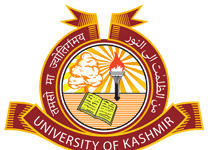
Column
New Delhi: Ever since the ghastly carnage carried out by a group of terrorists in Pahalgam on April 22, a hysteria of war between India and Pakistan has been developing and gaining momentum.
There is widespread expectation, not only among Indians but in Pakistan too, that India would take military action, bigger than a surgical strike or a Balakot-like airstrike.
Many Indians feel that the one-off actions like a surgical strike or an airstrike would not suffice as the country has been suffering for too long because of terrorism-sponsored by Pakistan.
But, at the same time, it has to be understood that any “big” military action can lead to a full-fledged war between two Nuclear neighbours. It may be recalled that the Balakot airstrike had brought the two countries to the brink of a war, which was averted somehow at that time.
But because of the repeated gruesome acts of terror originating from Pakistan, Prime Minister Narendra Modi has vowed that “terrorism will not go unpunished”.
He has promised to the nation that punishment to “every terrorist, their handlers and their backers”, which would be “beyond their imagination”, and the culprits would be chased to the “ends of the Earth”.
Now that the pledge has been made by a person who is seen as ‘a strong man meaning business’, everybody is anxiously waiting for it to be delivered.
While a series of non-military steps have been taken by the Government of India to ‘punish’ Pakistan, a guessing game is going on regarding the nature of the military action, if any, India would take.
So, in case of a war, will India achieve its prime objective — end of cross-border terrorism? Possibly, nobody can guarantee that.
But one thing is almost certain. A war at this moment can be extremely damaging for Pakistan and even result in its balkanisation. There are a number of reasons for this.
Pakistani military under deep stress:
The Pakistan Army is currently going through the worst phase as it is engaged in two intense internal wars besides a looming external threat.
The internal wars are with the Tehreek-e-Taliban Pakistan (TTP) and the armed Baloch groups fighting for independence of Balochistan. The external threat is from Taliban-ruled Afghanistan.
The two internal wars are causing huge damage to the Pakistani military in terms of men and material, and more importantly to its image.
Not a day passes when the Pakistani military does not lose multiple personnel and assets because of persistent attacks by TTP and Baloch fighters mainly belonging to Baloch Liberation Army (BLA), Baloch Liberation Front (BLF), Baloch National Army (BNA) and Baloch Raaji Aajoi Sangar (BRAS).
The regular setbacks and reversals in the battle field mean that the military personnel have to eternally maintain high alert just to save their lives, which is very damaging for the morale of any force.
The Pakistan Army’s ‘powerful’ image received a massive blow last month when a few dozen fighters of BLA, in an unprecedented and audacious action, seized and hijacked a moving train – Jaffar Express – in Balochistan.
The train was ferrying hundreds of off-duty soldiers, who were taken into custody by the BLA fighters after releasing civilian passengers on March 11. The standoff lasted over 48 hours, during which the BLA fighters killed 214 soldiers, according to the outfit.
Although the military tried hard to suppress the gravity of the BLA attack and the casualties suffered, the incident was a huge public embarrassment for the force and clearly shook the conscience of its leadership.
The pain of Pakistan Army Chief General Asim Munir came out on April 16 when he, while addressing a function, tried to downplay the successes of the Baloch fighters and claimed that a mere “1500” of them cannot separate Balochistan from Pakistan.
Notwithstanding General Munir’s claim, the Baloch fighters continue to bleed the Pakistani military every day through multiple attacks across Balochistan, sending out repeated messages that the occupied territory is not safe for them.
Similarly, the TTP, or the Pakistani Taliban, kills and injures dozens of military personnel in attacks every day as part of its “all-out war” against the “most corrupt” force.
To “break the back” of the Pakistan Army, the TTP has vowed to target not only the soldiers and their installations, but also the military-run business and commercial units, considering these as their “real strength”.
During the year 2024, TTP claimed to have killed 1284 personnel of the Pakistani armed forces and injured 1661 in 1758 operations.
The TTP, an extremely deadly organisation with the sole goal of defeating the Pakistani military, has vowed to intensify its activities under a special operation – codenamed ‘Al Khandaq’ – launched on March 15.
Under this operation, the outfit has mobilised thousands of its ‘Mujahideen’ across Khyber Pakhtunkhwa, Balochistan and Punjab province and they carry out dozens of casualty-causing attacks daily on the Pakistani military, secret agents and their installations.
Videos often emerge on the social media showing the TTP cadres ‘patrolling’ certain areas of Khyber Pakhtunkhwa or setting up security pickets. These are aimed at giving an impression that those areas have already been ‘liberated’ from the Pakistani military.
Afghanistan factor:
Adding to these heavy-costing internal wars is the external pressure looming large for the Pakistani military on the country’s western border.
Ever since the Taliban seized power in Kabul in August 2021, tensions have remained high between Afghanistan and Pakistan, particularly on the border which has been the scene of repeated armed confrontations.
The Taliban refuses to recognise the border, called the Durand Line, and wants it to be erased so that Pashtuns on either side of the divide can live with each other without any fence.
Considering the Taliban’s objective, a wary Pakistan has been forced to deploy a large number of troops along the border with Afghanistan.
Pakistan also requires a large strength of its troops on the Afghanistan border to curb, what it calls, cross-frontier movement by TTP and Taliban cadres.
Pakistan claims that TTP has bases in Afghanistan and that the Afghan nationals cross over to carry out acts of terrorism. These allegations are repeatedly denied by TTP as well as the Taliban regime of Afghanistan.
Because of the two intense internal wars and the Afghan border factor, the Pakistani military is already stretched out to a large extent and under huge pressure, with possibly dented morale.
In the recent times, particularly after the Jaffar Express incident, questions have been raised in the media, including by the military veterans, on the working and prowess of the military.
Some sections openly started talking that Balochistan had almost slipped away and the Pakistan Army had failed miserably in holding the occupied territory.
There have also been questions like: ‘If the Pakistan Army is not able to protect itself, how can it safeguard the country?”
It is because of these questions over the ‘macho’ image of the force, analysts feel, that the Pakistan Army leadership would have ordered the Pahalgam carnage so that the attention could be diverted by igniting military tensions with India.
The aim, possibly, would be to rebuild Pakistan Army’s dampened image through some propagandist posturing vis-à-vis India, as it can be a tool to evoke public sympathy and support under the garb of nationalism.
Hence, predictably, one sees the jingoistic statements being issued by the Pakistan Army about being ‘ever prepared to teach India a lesson’ and so on.
But the ground reality is much different and extremely dangerous for Pakistan as there is a strong possibility that its weak military would have to face military confrontation on 4 fronts – with India on the Eastern front, with TTP etc in the North, with ever-strengthening Baloch freedom fighters in the South and with Afghanistan on the Western border.
In such a scenario, Pakistan Army definitely would have to surrender within days, like in 1971, unless it wants to see butchering of its personnel on 4 fronts.
The reason being that if Pakistan army engages in a war with India, it will have to reduce troops in Balochistan, Khyber Pakhtunkhwa and the Afghan border.
That can be an opportunity for the people of Balochistan to give that one last push to achieve their dream of independence from Pakistan, like East Pakistan achieved in 1971 to become Bangladesh.
India may also help in that process by giving military and other logistical support to the Baloch people.
Similarly, reduction of troops in Khyber Pakhtunkhwa can create a situation where the Taliban – both Afghan Taliban and Pakistani Taliban – step up their operations to defeat the Pakistani military and separate Khyber Pakhtunkhwa from Pakistan.
Economic condition:
One more critical factor going against Pakistan right now is its extremely bad economic condition.
The country is surviving on the doles given by some global funding agencies like IMF and it barely has any foreign reserves to even buy the necessary items.
So, it is impossible for the country with such desperate conditions to afford a war, which puts huge stress on the economic and financial resources of a country.
India, on the other hand, has a very robust and big economy and hence can tolerate a war.
Nuclear:
Possession of nuclear weapons by Pakistan has been seen as a major deterrent to a war between the two countries since the leaders of that country have often threatened to use it if pushed to the wall.
But this threat, in all probability, is a bluff that Pakistan plays to protect itself.
Two developments in the past – Kargil conflict of 1999 and the Balakot airstrike of 2019 — have called that bluff already.
Were Pakistan really serious about using the nuclear weapon, it would have done so on either of these occasions, since both the times the country had to eat a humble pie.
In the future too, Pakistan would not be able to use the nuclear weapon, particularly when the US and other world powers are watching.
So, if the nuclear threat is ignored, conditions are heavily against Pakistan and a war with India could lead to its disintegration.
xxxxxxxxxxxxxxxxxxxxxxxxxxxxxxxxxxxxxxxx







